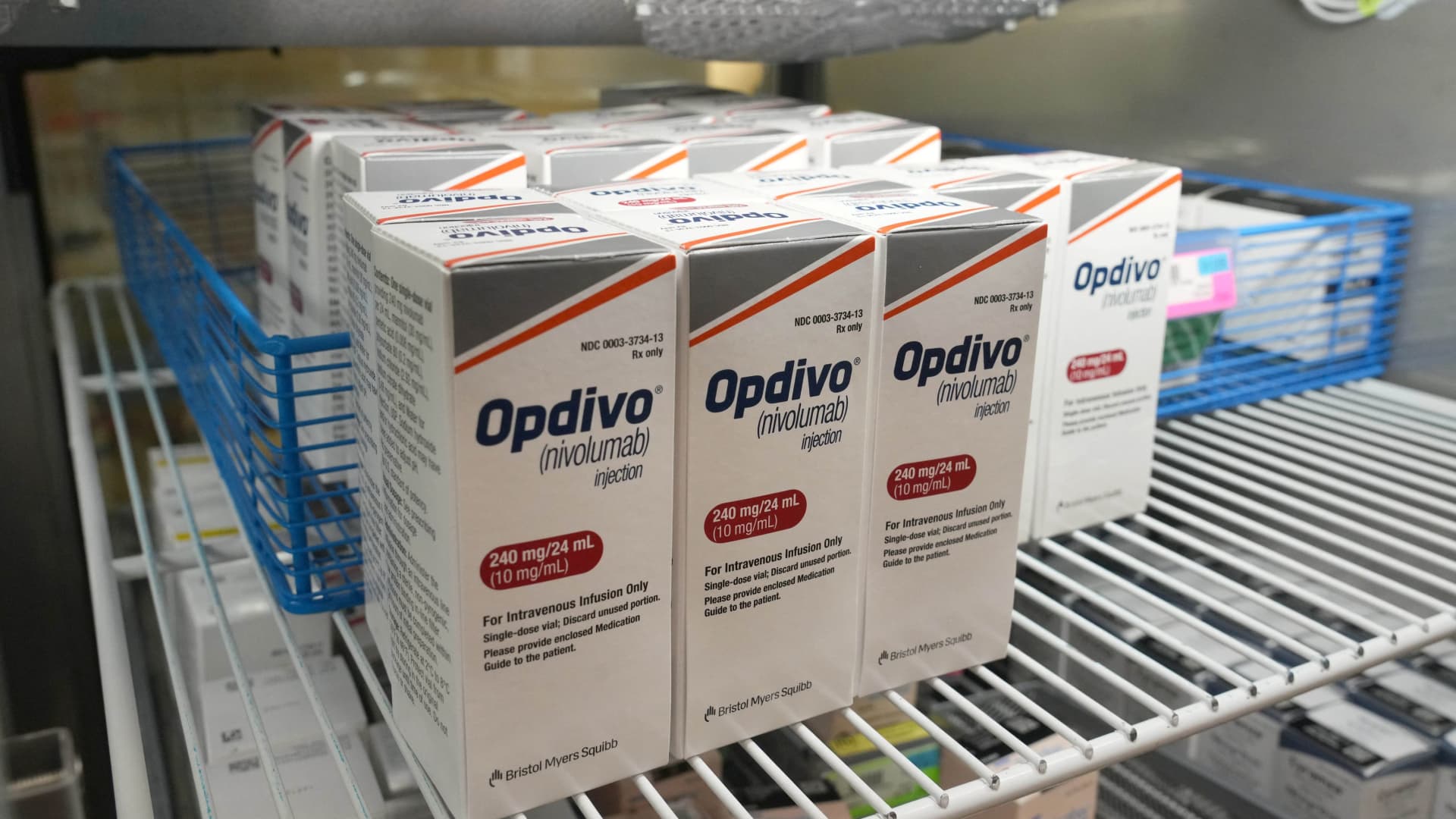A healthcare worker prepares an injection of the Pfizer Covid-19 vaccine. Comirnaty, September 14, 2023.
Irfan Khan | Los Angeles Times | Getty Images
A version of this article first appeared in CNBC's Healthy Returns newsletter, which brings the latest health care news straight to your inbox. Subscribe here to receive future editions.
Good afternoon! Vaccine makers have their sights set on the next big project: developing combination vaccines targeting both Covid and influenza.
As Covid vaccination rates decline in the US, Pfizer, Modern and Novavax, among other companies, hope that more convenient combination vaccines that offer protection against two viruses instead of one will boost uptake among Americans. Some health experts have cast doubt on that belief, CNBC previously reported.
Still, combination vaccines can also reduce the burden that respiratory viruses, which typically spread at the same time each year, place on pharmacists and the U.S. health care system at large.
The race to develop those vaccines is intensifying as all three companies test their respective vaccines in mid- or late-stage trials.
But Pfizer and its German partner BioNTech faced a setback last week that could allow rival Moderna to take the lead.
Pfizer said Friday that its messenger RNA-based vaccine that combines its approved Covid shot with an experimental flu shot failed to meet one of the main goals of a phase three trial in more than 8,000 adults, potentially jeopardizing the vaccine's future.
The vaccine produced a more effective immune response against the influenza A strain than an authorized flu vaccine and was as effective against COVID as Pfizer's existing product. However, the shot showed a weaker immune response against another strain called influenza B compared to the authorized flu vaccine.
Pfizer and BioNTech will consider adjustments to the combined vaccine and “discuss next steps with health authorities,” according to a statement.
“We remain optimistic about our combination program for COVID-19 and influenza, for which we are evaluating next steps,” Annaliesa Anderson, Pfizer's head of vaccine research and development, said in the statement.
Mikael Dolsten, Pfizer’s outgoing chief scientific officer, said at a conference in March that the company hopes to launch its combination vaccine in 2025. It’s unclear whether Friday’s results change that timeline.
If so, it could be good news for Moderna. The biotech company’s mRNA-based combination vaccine was successful in a late-stage trial in June, showing higher immune responses than existing standalone vaccines for COVID and flu.
Moderna plans to seek regulatory approval for the vaccine and expects it to come to market in 2025.
“The failure of this [Pfizer and BioNTech] The combined vaccine study puts [Moderna] “We are ahead in the development of the mRNA combination vaccine,” Leerink Partners analyst David Risinger said in a note Friday, adding that Pfizer's “update gradually improves the odds of success.” [Moderna’s shot] “It could be the first commercially available mRNA combination vaccine.”
Pfizer's stumble could also be good news for Novavax and Sanofiwhich partnered earlier this year to develop protein-based combination COVID-19 and flu vaccines. In May, Sanofi, a leading flu vaccine maker, agreed to pay Novavax up to $1.2 billion up front and partly in future installments to work on combining the companies’ vaccines.
Still, there’s a chance Pfizer could make necessary adjustments to its vaccine to get it back on track for regulatory approval. For example, Moderna’s initial standalone flu vaccine also failed to show as effective an immune response as an approved influenza B vaccine before the company made adjustments to overcome that hurdle.
We'll be keeping a close eye on any updates in the combo shot space, so stay tuned.
Feel free to send tips, advice, story ideas and information to Annika at [email protected].
Latest in healthcare technology: Epic's UGM meeting is underway – here's what to expect
The namesake sign outside Epic's headquarters in Verona, Wisconsin.
Source: Yiem via Wikipedia CC
This is Ashley, reporting live from Verona, Wisconsin!
I'm here for the first time attending Epic Systems' annual User Group Meeting (UGM), and it's sure to be an eventful day.
Epic is a healthcare software giant whose technology is used in thousands of hospitals and clinics across the country. Its 1,670-acre headquarters is located about 30 minutes from Madison, and thousands of healthcare leaders gathered here to talk technology this week.
The main event will be Tuesday's executive keynote, where Epic CEO Judy Faulkner and other top executives will share updates on the company's latest initiatives. The event will be held in a partially underground auditorium called “Deep Space,” which can hold more than 11,000 people.
Deep Space is a centerpiece of Epic's quirky campus, which is adorned with statues of wizards and buildings themed like “The Wizard of Oz” and “Alice in Wonderland.” Don't worry, I'm giving a guided tour this afternoon, so I'll have plenty more to share about it soon.
But if that's not enough to pique your interest, Epic executives will also be delivering the speech in costume. This year's UGM is themed around “story time,” according to the company's website. Remember this the next time someone tries to tell you that healthcare is boring.
As for announcements, I expect we’ll hear a lot about Epic’s work to integrate artificial intelligence into its software. The company already has more than 60 AI development projects underway, according to its website, and its high-profile partnerships with AI coding companies like Abridge and Microsoft’s Nuance Communications have generated a lot of conversation in the industry this year.
Perhaps unsurprisingly, both Nuance and Abridge are here attending UGM.
Epic has also been making waves in the healthcare technology interoperability space this summer. The company is one of the organizations that helped the federal government establish the Trust Sharing Framework and Common Agreement (TEFCA) to provide a legal and technical framework for securely sharing patient data.
Epic said Friday that it plans to move all of its customers to TEFCA by the end of next year. It’s a big step: Given Epic’s wide reach and 45-year history in the market, the company’s commitment to TEFCA will likely bolster the exchange’s credibility.
I'm betting Epic's leaders will address these efforts, as well as other ways the company is working to leverage its vast network.
Stay tuned for lots more UGM content from me this week! And if you have any suggestions on where I can find the best cheese curds on campus, feel free to reach out to me.
Feel free to send tips, advice, story ideas and information to Ashley at [email protected].












